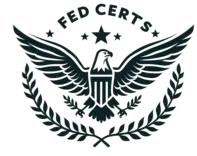Government Contracting Rules You Need to Know
Government contracting is every business owner’s dream – who doesn’t want to do business with the government? However, achieving federal contracting success may be challenging and involve several rules and regulations that a business must follow.
We have compiled a list of the top government contracting rules with the help of the top federal contracting specialists to help you understand the most critical laws a contractor must follow.
Government Contracting Rules
Here are two of the most critical government contracting rules every contractor must know to ensure their deal with the government goes smoothly.
Federal Acquisition Regulation (FAR)
 The Federal Acquisition Regulation (FAR) is an important document with several rules dictating how the government conducts contracts with organizations of all sizes in many sectors, including construction, transport, IT (Information Technology), education, health care, etc.
The Federal Acquisition Regulation (FAR) is an important document with several rules dictating how the government conducts contracts with organizations of all sizes in many sectors, including construction, transport, IT (Information Technology), education, health care, etc.
FAR is not a single rule — instead, it is a collection of regulations covering a wide range of subjects, from workplace safety to cost accounting and much more.
If you are a business owner who wants to do business with the government, the FAR rules will apply to your business whether you are aware of the existence of these rules or not. Therefore, knowing these rules can help ensure your deal with the government goes smoothly, and you are not charged with fines for not following FAR rules.
Furthermore, the list of FAR regulations is widely accessible on the official FAR website, and it is advised that you go over these rules before bidding on government contracts to ensure you are fully aware of what the government expects from contractors.
This will not only guarantee that you are in compliance, but it will also ensure that you are not signing up for anything you are not prepared for.
The FAR contains all forms, regulations, and clauses of the bidding process. FAR is frequently cited in court cases involving federal contracts and businesses that work with the federal government. If you intend to work with the government, you must understand the FAR regulations.
Understanding FAR
The FAR is broken down into fifty-three components. Each part covers a different element of the bid process. For example, the first six cover broad government acquisition issues, while the following six parts cover the rules regarding the acquisition planning process.
When you begin to review the FAR regulations, you may feel overwhelmed since they may be challenging to understand at first glance, especially if it is your first time going through them. However, upon reading them, you will slowly begin to understand the information.
You can also contact small business government contracting specialists to help you understand the FAR regulations if this is your first time doing business with the government. Contacting experts can help ensure you understand the rules in the regulations relevant to your business and pay attention to important details that, if missed, may result in penalties later on.
Federal contracting firms will usually recommend business owners focus on three aspects: recognizing the FAR’s relevance to their procurement activity, rules for small firms (FAR section 19) and subcontracting rules (FAR section 52), FAR provisions and contract forms like cost-reimbursement agreements or fixed-prices.
FASA was a ground-breaking rule that contributed to streamlining and simplifying government procurement. This act significantly altered how the government performed its contracting activity and contributed to the modernization of the overall purchase process.
President Bill Clinton initiated FASA in October of 1994. The act brought the contracting procedure into the twenty-first century by amending more than 200 statutes.
FASA was created in response to rising worries that the government was not benefiting from modern commercial technology to compete in the marketplace. Essentially, it changed acquisition and established simplified choices for commercial goods acquisitions.
In addition to easing paperwork requirements and converting the purchase process to e-transactions, it streamlined the government procurement procedure. Here is a list of the several important aspects of FASA:
Ø Fixed commercial goods are the favored items for the state to purchase if they fit the state’s demand. This adjustment has resulted in a decrease in the number of government employees that micro-enterprises must deal with. The more commercial goods the state purchases, the fewer manufacturing specialists, buyers, quality assurance experts, price specialists, and other employees will be needed than when the state designed as per its requirements
Ø Altered the small purchasing threshold from 25,000 or under to within 3,000 – 100,000 dollars and specified that each of these acquisitions could benefit from easier acquisition processes. The primary goals of easier acquisition processes were decreased administrative expenses and improved contract prospects for smaller, more disadvantaged businesses owned by disabled veterans or women
Ø Urged all purchasing agencies within the state to utilize credit cards for all transactions below 3,000 dollars. The goal was to remove troublesome purchases from the acquisition department so that the state user could easily and swiftly acquire what they needed. As a result, smaller businesses now benefit from reduced documentation requirements and have a legitimate shot at growing their business by allowing customers who prefer to use credit cards to enjoy credit card purchases
Ø Made it necessary for the state to conduct smaller transactions electronically. This was referred to in the statute as “SAP,” allowing the state to let go of on-paper transactions (under a hundred thousand dollars) and embrace the age of electronic transactions
Bottom Line
Knowing the vital government contracting rules before beginning your business with the government can help ensure the entire process goes smoothly. If you still need more guidance on necessary government contracting rules and want to know how to get started in government contracting, you can contact the experts at the FedCerts.
We have streamlined the process of getting federal contracts for small businesses in different industries and have helped small businesses achieve new heights of success.
In addition, we offer federal contracting services, including SAM registration, SAM renewals, DSBS registration, DSBS profile optimization, and consulting for government contractors.
So what are you waiting for? Contact us by dialing (888) 988-1266 and make us your partner in federal contracting.



